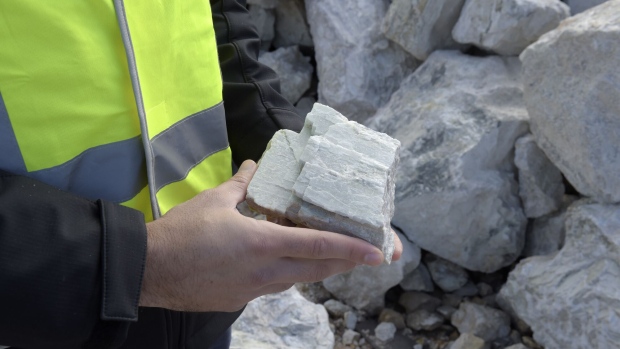Sep 22, 2023
London-Listed Miner Says Mali Lithium Project Not Hit by New Law
, Bloomberg News

(Bloomberg) -- London-listed Kodal Minerals Plc said its lithium project in Mali won’t be impacted by new legislation that entitles the state to a greater share of the West African nation’s mining assets.
On Aug. 29, Mali’s military head of state Assimi Goita signed the law, which doubles the stake the authorities can acquire to 20% and sets aside an additional 5% of shares for “national investors.” The authorities had already said the updated law won’t apply to the established gold operations that have long dominated the country’s mining industry – such as Barrick Gold Corp.’s Loulo-Gounkoto and B2Gold Corp.’s Fekola assets.
Mali’s National Directorate of Geology and Mines has confirmed that Kodal’s license to mine the Bougouni lithium project will be “administered in accordance” with the terms of the previous law, the firm said in a statement Friday.
The boom in lithium, a key battery metal, has kick-started a race for deposits. Mining heavyweights, battery manufacturers and automakers from Rio Tinto Plc to Tesla Inc. are chasing deals as they look to secure future supplies.
Kodal is vying with Australia’s Leo Lithium Ltd. to bring Mali’s first lithium mine to production. Kodal was awarded its license in late 2021, while Leo Lithium was given the right to develop the Goulamina asset in August 2019.
Leo Lithium suspended trading of its shares on Sept. 19 pending an announcement on the application of the revised mining code to its project.
Read More: Mali Mining Code Won’t Impact Barrick and B2Gold Gold Mines
Mali has been beset by instability since a jihadist insurgency began in 2012, and has experienced two military coups over the past three years. Since the last army takeover in 2021, the junta has ordered the departure of a 13,000-strong United Nations force and allowed hundreds of personnel from Russia’s Wagner mercenary group to help combat the Islamist militants.
©2023 Bloomberg L.P.





